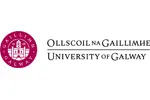We're moving! This site will be relocating to goingto.university in 2026. Please update your bookmarks to the new address.


Ireland
University of Galway| The award | How you will study | Study duration | Course start | Domestic course fees | International course fees |
|---|---|---|---|---|---|
| Bachelor | Full-time | 4 years | September | - | - |
Electrical and Electronic Engineering involves developing technologies required for our future needs in such areas as communication, electrical energy, transport, healthcare and entertainment. Electrical and Electronic Engineers are involved in advances in medical technology, mobile phones, wireless communications, electrical power systems, renewable energy, electric vehicles, e-commerce and the internet-of-things. This degree programme provides students with a broad range of skills relating to all aspects of the design of electrical and electronic systems and devices. It combines coursework in different aspects of electrical and electronic engineering, as well as individual and group project work, where students design and build innovative electrical and electronic systems.
This programme provides a solid technological base from which a career in electrical and electronic engineering can be launched, along with the basic skills needed to sustain professional development throughout a graduate career. As it combines coursework, laboratory classes and projects in different aspects of electrical and electronic engineering, the programme will give graduates the knowledge and skills needed to design and develop innovation technologies for a wide range of industry sectors. It incorporates the design and development of devices, circuits and systems that are used in a wide range of high-tech products and so it will appeal to students who like to understand how technology works, and who have an interest in electrical or electronic circuits. Students who enjoy science, and particularly physics, are usually attracted to it.
All students registering for an engineering degree at University of Galway will be enrolled on an integrated five year programme; a Bachelor of Engineering (BE) (four years, Level 8) + a Master of Engineering (ME) (one year, Level 9). Upon successful completion of the five years of study, graduates will have the educational qualifications required for progression to Chartered Engineer. Students registering for an engineering degree at University of Galway in 2019 will make a decision at the beginning of 3rd Year to either remain on the BE+ME pathway (five years) or exit with a BE (four years). Students on the BE+ME pathway will avail of advanced engineering modules, a substantial research and development project, and a work placement of eight months duration during the 4th Year. For students exiting with a BE, the work placement (eight months) will occur during 3rd Year. Read more about Engineering Read more about Engineering work placements.
All Engineering Degrees at University of Galway are professionally accredited by the statutory professional body, Engineers Ireland. This 'Accreditation' means that the degree has been assessed and approved to meet the educational requirements for professional Engineers.
Under an international agreement (Washington Accord), any Degree accredited by the National professional body (Engineers Ireland) is recognized internationally. So having an 'Accredited' degree means that employers outside of Ireland can (1) understand the quality/education achieved by a graduate and (2) know that it is equivalent to their own Education system/standards, and (3) can offer appropriate employment on this basis. For example, certain functions (sign off on large civil engineering construction projects) can only be carried out by a chartered engineer.
Engineers Ireland changed the criteria for Accreditation in 2012, and now require a Masters (Level 9) qualification as the education standard required for Registered Professional Titles of Chartered Engineer* (prior to this, a Level 8 degree was required). The changes were implemented because the standard European engineering qualification (degree or diploma) is at level 9, and European industry maintains a strict differentiation between those engineers qualified at level 9 and those qualified at level 8. Any graduate interested in working in Europe/Worldwide is now strongly advised to get an accredited level 9 award.
Engineers Ireland accreditation can be obtained at the following levels:
*A Chartered Engineer is the highest professional education standard in Engineering. A chartered Engineer is competent (because of their education and training) to assume personal responsibility for the development and application of engineering in research, design, construction, manufacturing, superintending, managing and in the education of the engineer. His/her work is predominantly intellectual and varied and not of a routine mental or physical character. It requires the exercise of original thought and judgement and the ability to supervise the technical and administrative work of others.
Dr. Brian Deegan*
Prof John Breslin
Dr Peter Corcoran
Dr Maeve Duffy
Dr Adnan Elahi
Prof Martin Glavin
Dr Edward Jones
Mr Liam Kilmartin
Dr Fearghal Morgan
Dr Martin OHalloran
Prof Gearoid OLaighin
Contact University of Galway to find course entry requirements.
Below are some suggested courses at other providers that you may also be interested in:
Advanced Bachelor of Bioinformatics Advanced Diploma, Bachelor Degree
Howest University of Applied Sciences
Find out moreMaster in Design for Mobility Solutions Master Degree
IAAD. - Institute of Applied Art and Design
Find out moreMarketing Management - Digital Business Concepts Bachelor Degree
Fontys Economy Tilburg
Find out moreIf you do not meet the entry requirements for this course then consider one of these courses from another institution:
There are 164 other courses listed from University of Galway. A selection of these are displayed below:
Bachelor and Master of Engineering (Electrical and Electronic) Bachelor
University of Galway
Find out moreBachelor and Master of Engineering (Electronic and Computer) Bachelor
University of Galway
Find out moreJoin the StudyLink email list and never miss a chance to turn your study abroad dreams into reality!

Find out more about studying in Ireland